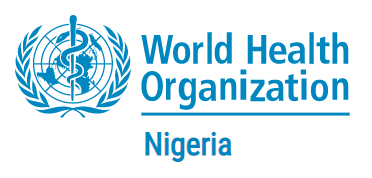By Muhammad Amaan
The World Health Organization (WHO) has called on Nigeria to scale up efforts to address systemic fragmentation of healthcare interventions to accelerate maternal health progress.
WHO’s representative in Nigeria, Dr Walter Kazadi Mulombo made the call on Thursday in Abuja at the 2024 Maternal Health Policy Dialogue.
The event had the theme: “Scaling Maternal Health Innovations in Nigeria.” It was organised by Nigeria Health Watch.
Maternal mortality remains a critical issue in Nigeria, which ranks second globally in maternal deaths, according to 2023 WHO Report.
The statistic underscores the gap between Nigeria’s current health outcomes and the Sustainable Development Goals (SDG) target of fewer than 70 maternal deaths per 100,000 live births.
Systemic barriers such as poor access to healthcare services, financial constraints, and inadequate transportation infrastructure contribute to delays in seeking maternal healthcare services, exacerbating the crisis.
However, innovative approaches in digital health, telehealth, and evidence-based interventions such as E-MOTIVE, a postpartum haemorrhage management bundle, offer promising solutions.
Mulombo said that one of the fundamental challenges is fragmentation of healthcare interventions across various departments and sectors.
“Addressing these gaps, particularly in family planning services, exclusive breastfeeding and treatment for childhood illnesses, is critical.
“Enhancing coordination and ensuring universal coverage for these interventions are essential steps towards achieving the SDG targets in Nigeria,” he said.
He highlighted the need for aggressive and deliberate actions and strong governance.
“Nigeria’s commitment to reducing maternal, new-born and child mortality aligns strongly with WHO’s World Health Assembly (WHA) resolution aimed at accelerating progress towards health-related SDGs, particularly SDG 3.
“The resolution focuses on ensuring healthy lives and promoting well-being for all at all ages,” he said.
According to him, Since the adoption of the SDGs in 2015, Nigeria has shown consistent commitment to improving maternal and child health outcomes.
“Key targets in the WHA resolution include reducing the maternal mortality ratio to below 70 per 100,000 live births by 2030 and significantly reducing child mortality rates.
“These targets are crucial benchmarks for assessing progress and guiding national health strategies,” he said.
He said that Nigeria’s proactive stance in sponsoring the resolution underscored its dedication to advocating innovative approaches and effective implementation of national health plans.
The WHO representative called for a shift toward comprehensive solutions over pilot studies to drive significant improvements in health outcomes.
He highlighted the importance of investing in primary healthcare and addressing healthcare workforce shortages to build resilient health systems capable of providing quality care for all.
“Strategic initiatives such as the Nigeria Health-Sector Renewal Investment Initiative are crucial components of Nigeria’s strategy to improve primary healthcare.
“By promoting a primary care-centric model and enhancing governance, Nigeria aims to effectively reduce preventable maternal and child deaths,” he said.
According to him, special attention is needed for healthcare systems in fragile and conflict-affected regions, such as north East Nigeria.
“Strategies to overcome barriers in these areas include establishing a robust healthcare network with strong referral mechanisms and supporting pre-hospital services, laboratories and blood banks.
“These efforts are essential to ensure that all regions, including those experiencing humanitarian crises, receive adequate healthcare support.
“With Nigeria’s visible efforts to implement the WHA resolution, the emphasis is now on turning discussions into concrete actions to achieve the SDG targets by 2030,” he said.
He stressed that maternal health impacted everyone and that preventing maternal deaths remained a collective responsibility.
Professor Hadiza Galadanci, Director of the Africa Centre of Excellence for Population Health and Policy at Bayero University, Kano, called for early detection and treatment of postpartum haemorrhage.




